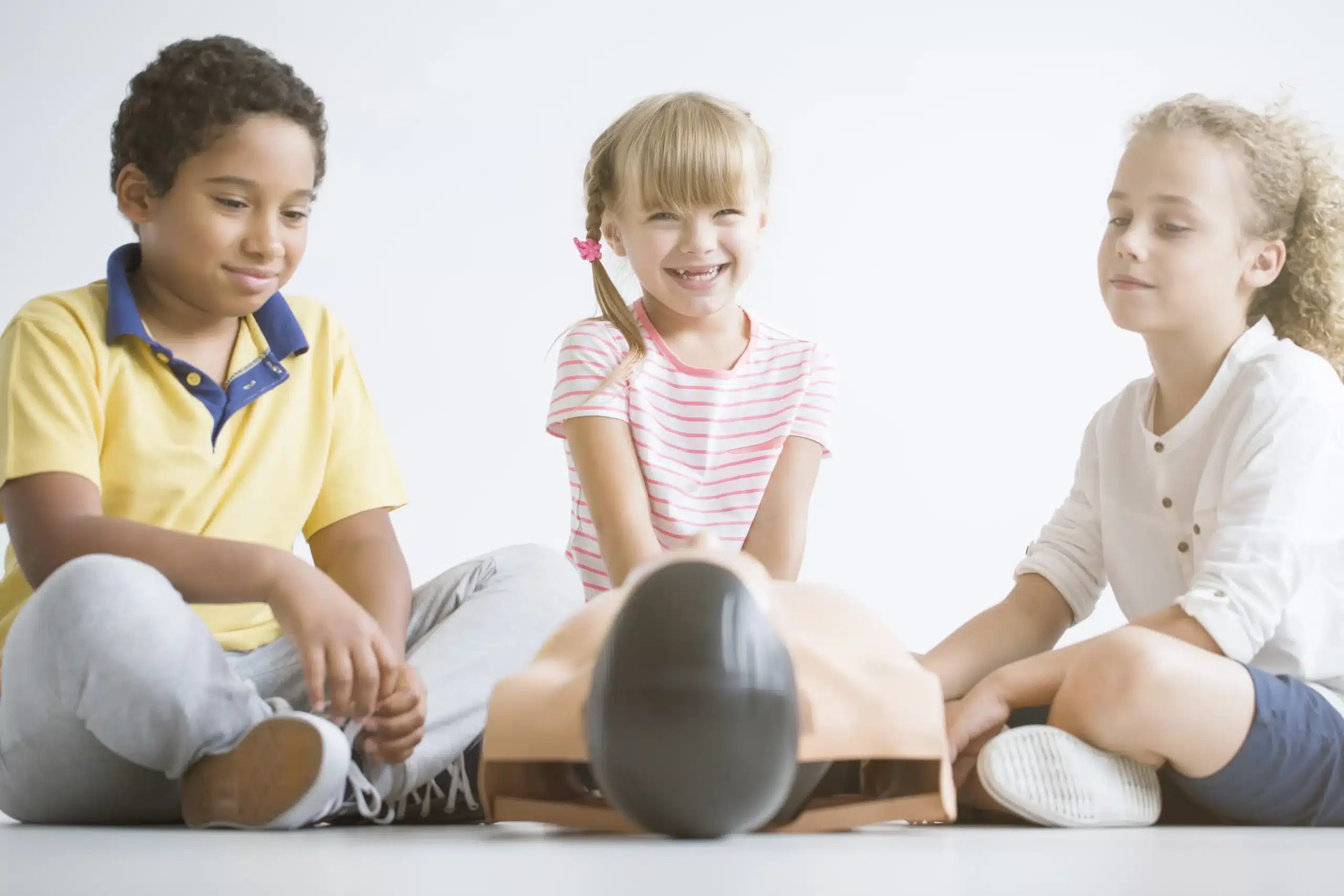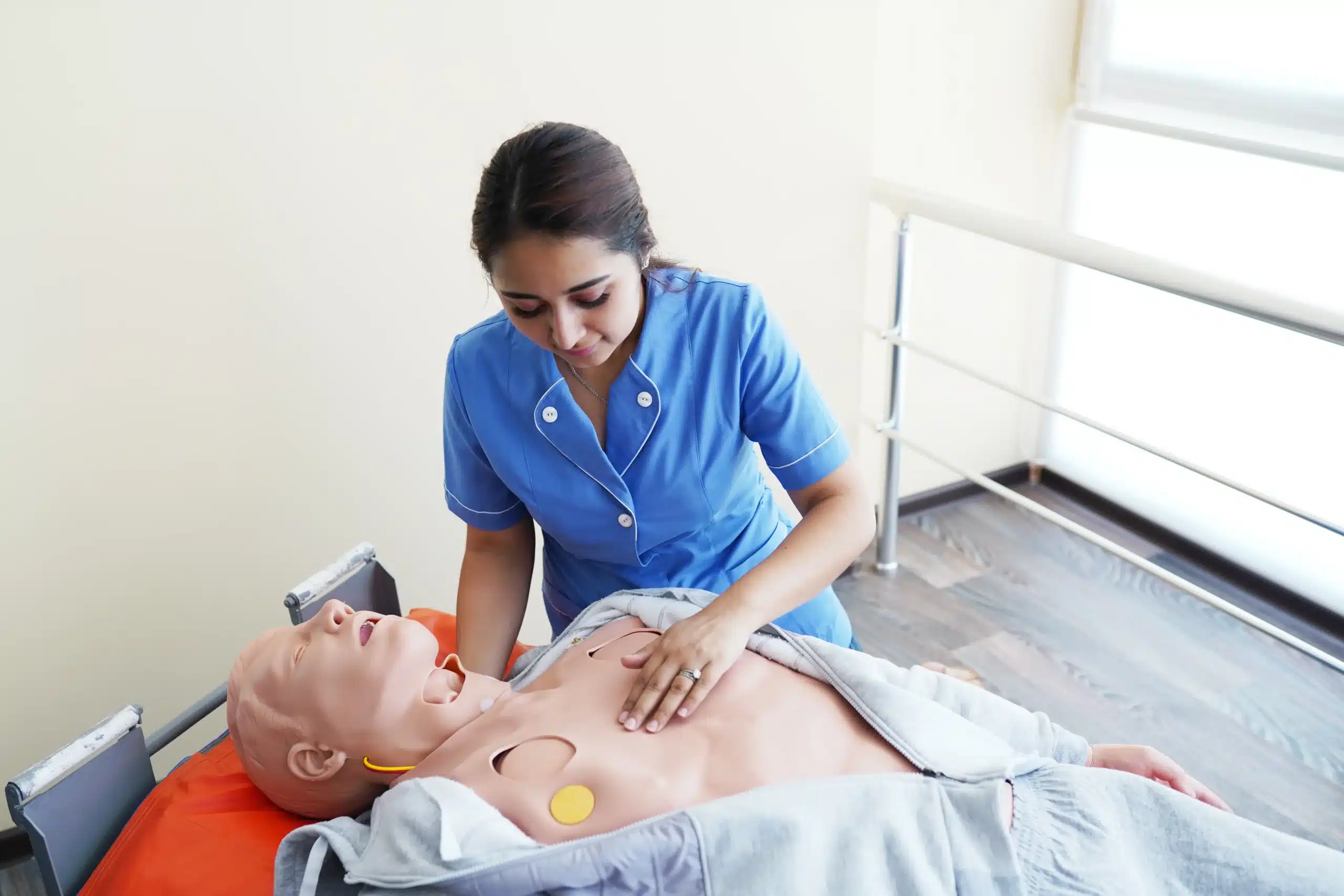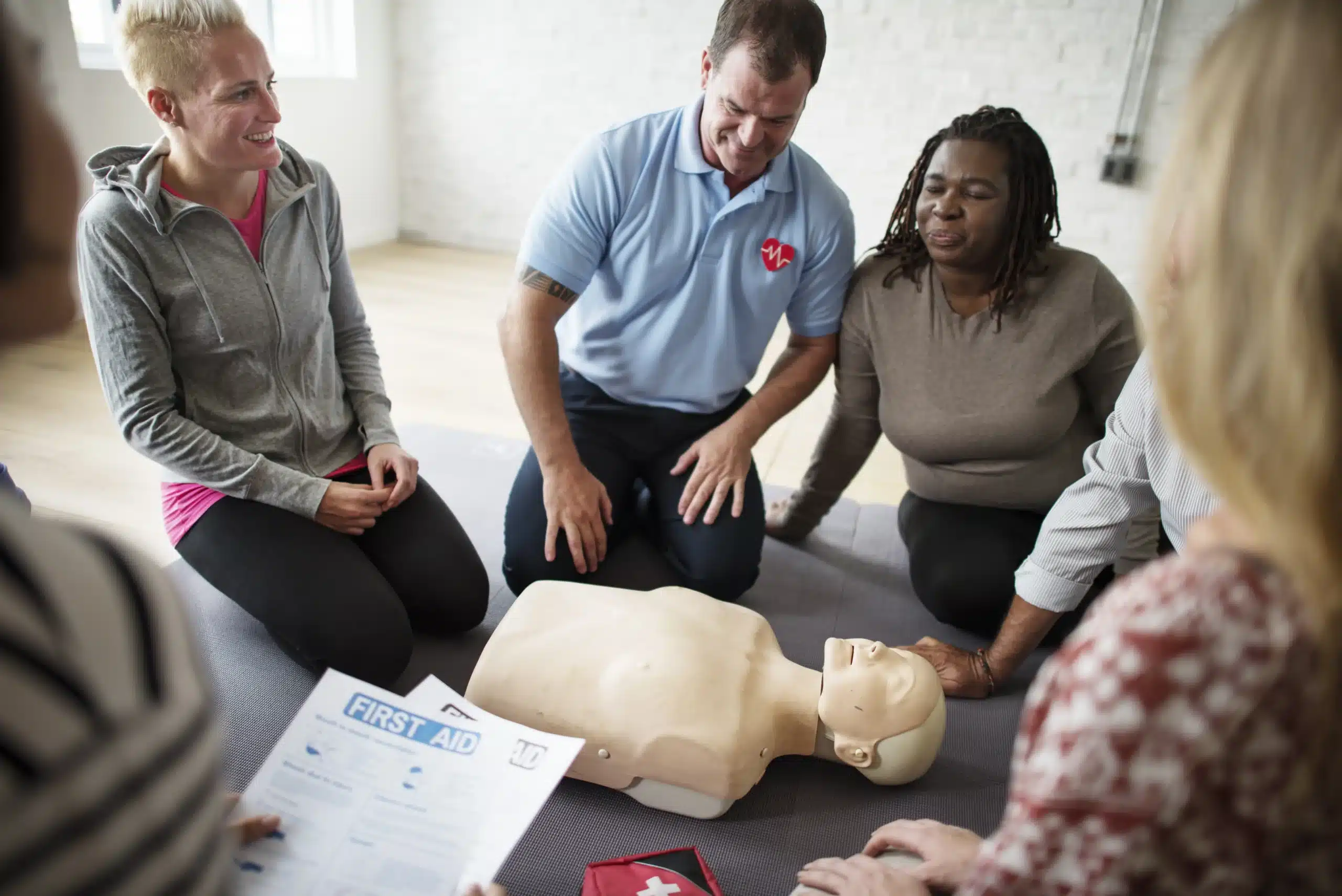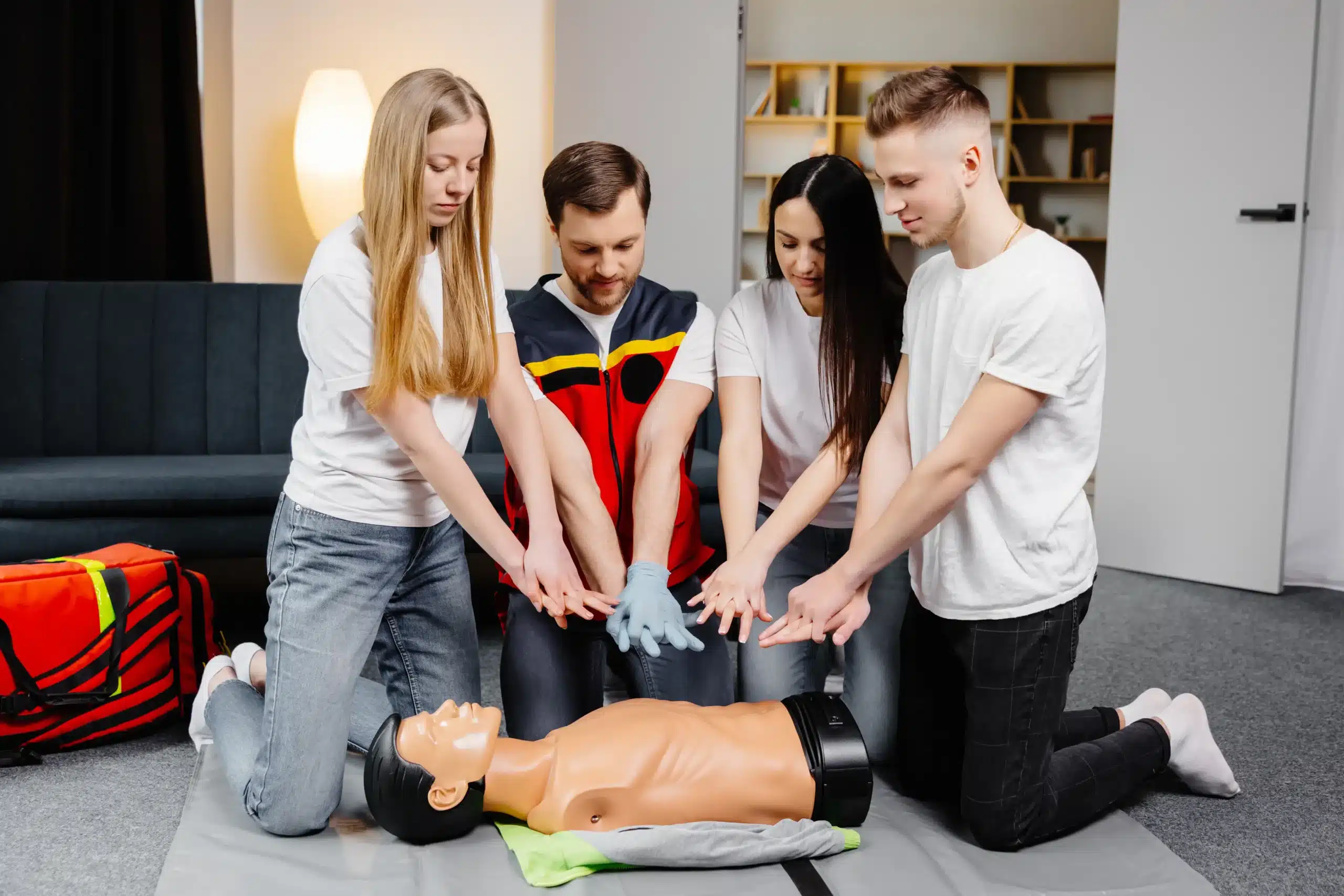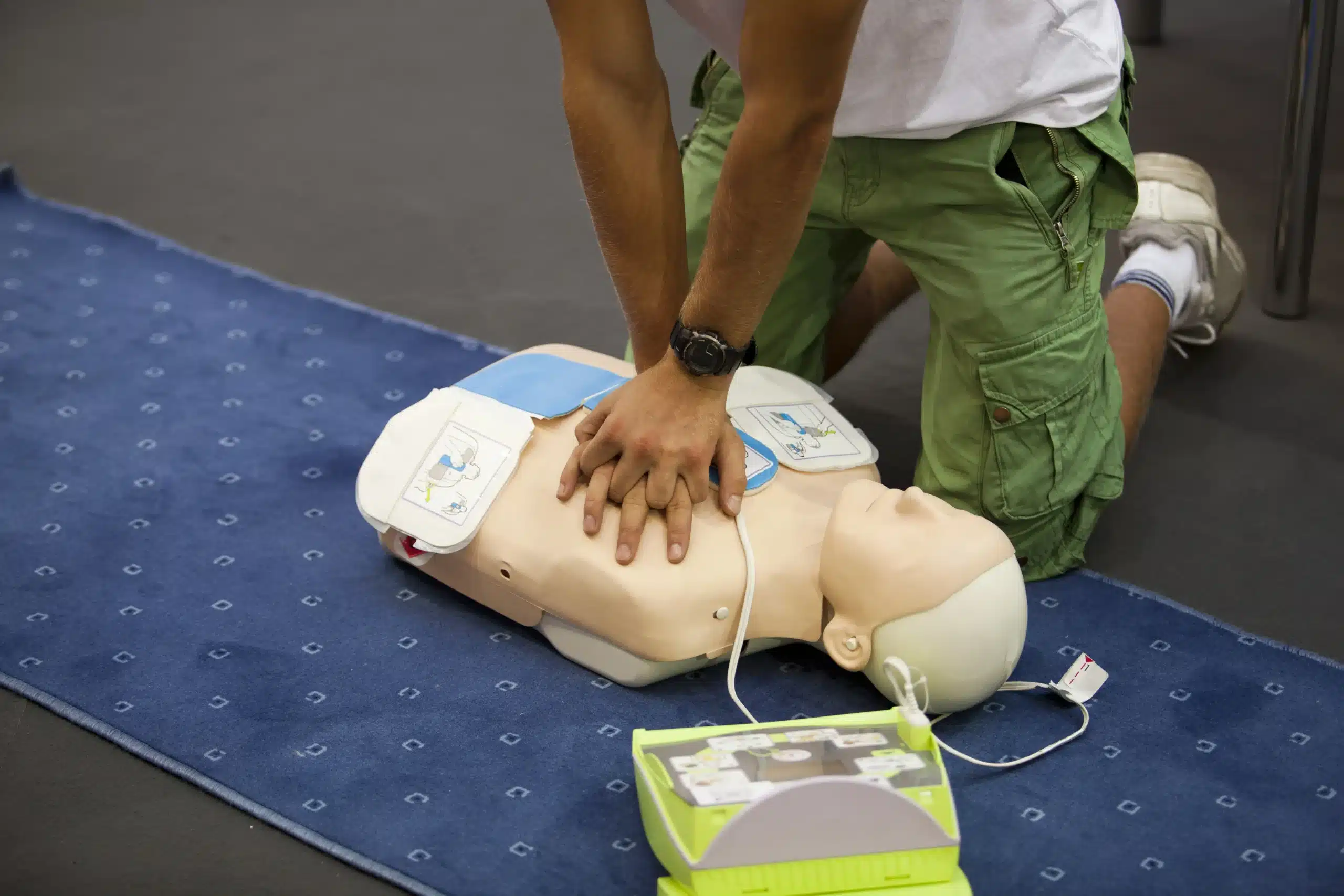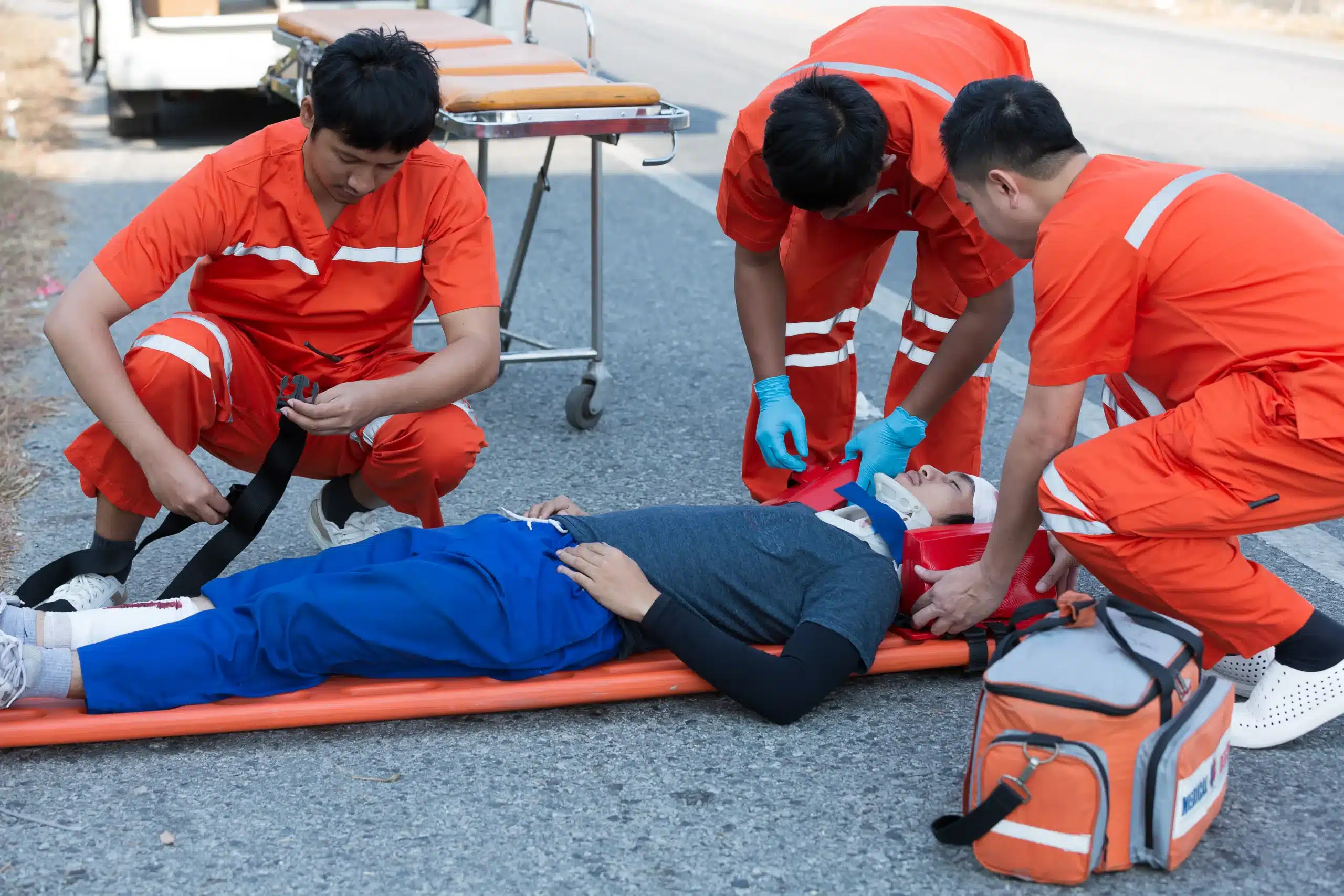Balancing a demanding career with essential professional development can be a challenge, especially for healthcare providers in Livermore. Finding time for crucial certifications like Pediatric Advanced Life Support (PALS) often feels like fitting a square peg into a round hole. But what if you could learn life-saving skills at your own pace, fitting the training around your busy schedule? That’s where PALS Heartcode in Livermore comes in. This blended learning program combines the flexibility of online learning with the practical experience of in-person skills sessions. Whether you’re a nurse, doctor, EMT, or other healthcare professional, PALS Heartcode offers a convenient and effective way to gain the skills you need to provide exceptional care to infants and children. In this article, we’ll explore the benefits of PALS Heartcode, how it works, and where to find training in Livermore.
Key Takeaways
- HeartCode PALS blends online learning with hands-on skills: Study the coursework online at your own pace, then attend an in-person skills session to complete your certification. This flexible approach accommodates busy schedules.
- Dublin CPR Classes offers convenient and affordable PALS training: Benefit from their flexible scheduling, low price guarantee, and group discounts for a cost-effective learning experience.
- PALS certification provides crucial skills for pediatric emergencies: Gain the knowledge and confidence to respond effectively to life-threatening situations involving infants and children.
What is HeartCode PALS and How is it Different?
HeartCode PALS is a blended learning program from the American Heart Association (AHA) that teaches Pediatric Advanced Life Support. It combines online coursework with a required in-person skills session. This approach lets you learn the material at your own speed and then demonstrate your skills practically. It’s ideal for busy professionals in Livermore needing flexibility in their training schedule. Complete the online portion from anywhere with internet access, then schedule your hands-on session at your convenience. Both components are required to receive your PALS certification.
Online Learning
The HeartCode PALS online portion uses interactive modules, simulations, and case studies to teach essential concepts and decision-making. You’ll work through the material at your own pace, reviewing topics as needed. This self-directed learning lets you focus on areas where you need more practice. The AHA HeartCode program offers various online courses for healthcare professionals.
Hands-on Skills Session
After completing the online portion, you’ll attend an in-person skills session. This session typically takes about five hours, including breaks. You’ll practice essential skills like child and infant BLS under the guidance of a certified instructor. You’ll also apply your knowledge in simulated scenarios, testing your ability to respond effectively in real-life emergencies. The AHA provides details on PALS course options, including the skills session component.
Adaptive Learning Technology
HeartCode PALS uses adaptive learning technology to personalize your online learning experience. The program adjusts to your individual learning style and pace by tracking your performance and confidence level. This provides a customized learning path focusing on areas where you need the most support, ensuring you understand the material and are well-prepared for the hands-on skills session.
HeartCode PALS Benefits in Livermore
HeartCode PALS offers several advantages, especially for busy professionals in Livermore. Let’s break down why this blended learning approach might be a good fit for you.
Flexible, Self-Paced Learning
Juggling work, family, and other commitments makes finding time for traditional classroom courses tough. HeartCode PALS lets you learn online at your own speed. You can study when and where it’s convenient, fitting the training around your existing schedule. The HeartCode PALS program uses an adaptive learning path personalized by your performance and confidence level, making the process efficient and targeted to your needs.
Cost Savings
Blended learning often comes with cost benefits. While there’s still an in-person skills session, the online portion can reduce overall training expenses. This blended approach combines online convenience with in-class practicality, maximizing flexibility and skill competence. Think of it this way: less time in a classroom means less time away from work or other responsibilities.
Comprehensive Learning
HeartCode PALS doesn’t skimp on content just because it’s partially online. The online modules cover a wide range of essential pediatric advanced life support topics. This ensures you develop a strong foundation of knowledge before practicing your skills in person.
Nationally Recognized Certification
Completing the HeartCode PALS course, including the hands-on skills session, earns you the same nationally recognized PALS Course Completion Card as the traditional classroom course. This means your certification holds the same weight and meets the same rigorous standards, regardless of how you choose to learn.
Find HeartCode PALS Courses in Livermore
Finding the right HeartCode PALS course in Livermore is easier than you think. Here are a few options to explore:
Dublin CPR Classes
Dublin CPR Classes offers a variety of training options, including HeartCode PALS. With classes available daily, from 8 am to 10 pm, seven days a week, it’s easy to fit training into your schedule. For more details and to register, visit their website. They also offer a low price guarantee, ensuring you receive excellent value.
Safety Training Seminars
Safety Training Seminars in Livermore provides American Heart Association-certified courses, including BLS, ACLS, PALS, and CPR/First Aid. They also offer additional courses such as NRP and EMSA. Learn more about their PALS certification.
Livermore CPR Classes
This convenient Livermore location offers CPR training and related courses. Contact them for more information.
American Heart Association Training Center
The American Heart Association provides helpful resources about the HeartCode PALS program. Their PALS course options page explains the program’s adaptive learning technology and benefits.
Costs and Discounts
Knowing the costs associated with your HeartCode PALS certification and available discounts can help you budget effectively. Let’s break down the typical price ranges and ways you can save.
Typical Prices
HeartCode PALS courses typically involve two parts: the online portion and the in-person skills session. While pricing can vary depending on the training center, the online portion often ranges from $150 to $200. The in-person skills session, which is essential for completing your certification, usually adds another $50 to $100 to the total cost. Dublin CPR Classes offers a low price guarantee to ensure you’re getting a competitive rate. Remember to factor in both parts when budgeting for your PALS certification.
Group and Bulk Discounts
If you’re coordinating training for a group, such as your hospital staff or a team of childcare providers, be sure to inquire about group discounts. Dublin CPR Classes offers reduced rates for groups of six or more. This can significantly lower the per-person cost, making it more affordable to train your entire team. Contact us to discuss your group training needs and explore available discount options.
Early Registration Incentives
Planning ahead can also save you money. Some training centers offer early registration discounts as an incentive to book in advance. Check with Dublin CPR Classes to see if they offer any early bird specials or other promotions. Signing up early also guarantees you a spot in the class and allows you to secure a time that works best with your schedule.
Get HeartCode PALS Certified
Steps to Certification
HeartCode PALS is a blended learning program from the American Heart Association (AHA) combining online coursework with an in-person skills session. You’ll first complete the HeartCode PALS online portion at your own speed, covering the core PALS knowledge. Afterward, you’ll register for a separate, in-person skills check. Both components are required for your PALS Provider Course Completion eCard. Dublin CPR Classes offers the hands-on skills session, making it easy to complete your certification.
Time and Scheduling
The online portion of HeartCode PALS is self-paced, allowing you to fit it into your schedule. The in-person skills session with Dublin CPR Classes typically takes about five hours, including breaks. We offer various skills session times to accommodate busy professionals and families in Dublin, Livermore, and San Ramon. Check our website for upcoming dates.
Receiving Your Certification
Upon successful completion of both the online course and the hands-on skills session, you’ll receive your official American Heart Association PALS Provider eCard, valid for two years. Dublin CPR Classes ensures you receive your eCard promptly after your skills check.
Renew Your Certification Regularly
Your PALS certification is valid for two years. To maintain your credentials, renew before it expires. Dublin CPR Classes offers PALS renewal courses to help you stay current. If your card has already expired, you’ll need to retake the full course. We recommend registering for a renewal a few weeks before your certification expires to avoid a lapse in your qualifications.
What Happens in the Skills Session?
The PALS HeartCode blended learning course combines online learning with a hands-on skills session. This approach lets you learn at your own pace and then demonstrate your skills in person. Let’s explore what you can expect during this crucial in-person component.
Equipment and Scenarios
After completing the online portion of the HeartCode PALS course, you’ll move on to the hands-on skills session. This session focuses on applying the knowledge you gained online. You’ll work with equipment, including mannequins and medical devices, to simulate real-life pediatric emergencies. These scenarios help assess your ability to respond effectively under pressure.
Instructor Guidance and Feedback
Experienced PALS instructors, often familiar with the HeartCode PALS online portion, will guide you through the various scenarios. They’ll provide feedback and answer your questions, offering advice to help you refine your skills. This personalized instruction ensures you’re prepared to handle pediatric emergencies.
Critical Thinking and Skill Application
The skills session isn’t about memorization; it’s about applying your knowledge and critical thinking skills. You’ll be evaluated on your basic life support (BLS) skills for children and infants. You’ll also participate in learning stations focused on key areas like respiratory emergencies, rhythm disturbances, and vascular access. While testing on these case scenarios might be optional, active participation helps solidify your understanding and build confidence.
Who Should Take HeartCode PALS?
HeartCode PALS (Pediatric Advanced Life Support) is a vital certification for anyone who works with or cares for infants and children. It equips individuals with the knowledge and skills to respond effectively in life-threatening situations. While many professions benefit from PALS certification, certain roles, in particular, will find this specialized training essential.
Healthcare Professionals
Healthcare providers in settings like emergency rooms, intensive care units, and pediatric wards regularly encounter situations requiring advanced life support interventions. HeartCode PALS provides these professionals—including physicians, nurses, and respiratory therapists—with the training to manage pediatric emergencies, from respiratory distress and shock to cardiac arrest. This training covers essential skills such as airway management, rhythm recognition, and medication administration. For those pursuing such a career, a PALS course offers invaluable preparation.
First Responders
Paramedics, EMTs, and other first responders are often the first on the scene of a pediatric emergency. HeartCode PALS equips these individuals with the skills to assess, stabilize, and transport young patients experiencing life-threatening conditions. The flexible online HeartCode format makes it easier for busy first responders to obtain and maintain their certification.
Childcare Providers
For those working in daycare centers, preschools, or as nannies, holding a PALS certification demonstrates a commitment to child safety. PALS training gives childcare providers the skills to recognize and respond to emergencies such as choking, near-drowning, and allergic reactions. This knowledge can be crucial in preventing serious injury or even saving a child’s life.
Educators and School Staff
While not always a requirement, PALS certification is a valuable asset for teachers, school nurses, and other school staff members. Medical emergencies can happen at any time in a school setting, and having trained personnel on hand can make all the difference. PALS certification prepares educators to handle situations like seizures, asthma attacks, and injuries sustained during school activities.
Prepare for Your HeartCode PALS Course
Getting ready for your HeartCode PALS course involves a few key steps. Understanding the materials, tech requirements, and pre-course study tips will set you up for success. We’ll also cover some common challenges and their solutions so you can feel confident going into your training.
Materials and Tech Requirements
The HeartCode PALS course blends online learning with a separate, in-person skills session. The online portion, accessible through the American Heart Association, allows you to learn at your own pace. Remember, you’ll need to complete both the online component and the hands-on skills session with Dublin CPR Classes to receive your PALS certification card. Before you begin, double-check the technical specifications—browser compatibility, operating system, internet connection speed, and screen size—to ensure a smooth learning experience.
Pre-course Study Tips
Want to ace your skills test? We highly recommend watching the pre-course videos. Studies show that reviewing these materials can significantly improve your chances of success. The course covers three key areas: Respiratory, Rhythm Disturbances, and Vascular Access. While you’ll actively participate in all three learning stations, testing is optional, allowing you to focus on mastering the skills.
Common Challenges and Solutions
One thing to keep in mind is the requirement for instructors to complete the 2020 AHA Guidelines Instructor Update for PALS. This ensures they’re teaching the most current practices. As a student, you’ll be tested on your competency in child and infant Basic Life Support (BLS), which can sometimes feel a bit daunting. Thorough preparation and a clear understanding of the course requirements will help you feel prepared and confident. The HeartCode PALS FAQ also offers helpful insights. Remember, Dublin CPR Classes is here to support you through the process. We offer a low price guarantee and group discounts for added convenience.
Maintain Your HeartCode PALS Certification
Keeping your PALS certification current is vital for providing the best possible care. Here’s what you need to know about renewing your HeartCode PALS certification and staying up-to-date with the latest guidelines.
Renewal Process
PALS certification is valid for two years, regardless of whether you complete the course online or in person. The American Heart Association offers a variety of PALS course options, all leading to the same certification card. To avoid a lapse in your credentials, register for a renewal course before your current certification expires. Planning ahead ensures your skills and knowledge remain current, allowing you to provide the highest quality of care.
Continuing Education
The HeartCode PALS course offers valuable continuing education credits for healthcare professionals, including AMA PRA Category 1 Credits™ for physicians and contact hours for nurses. This makes the course a beneficial choice for both maintaining your certification and enhancing your professional development.
Stay Current with Guidelines
Medical best practices are constantly evolving. Staying informed on the latest guidelines from the American Heart Association is crucial for delivering effective care. The AHA regularly updates its guidelines, and using current materials is essential for your PALS course. Check the AHA Training Memos and Bulletins for the most up-to-date information on required course materials. Staying current ensures you’re equipped with the most effective, evidence-based knowledge and techniques.
Key Skills and Knowledge
This section covers the core skills and knowledge you’ll gain through PALS certification, empowering you to confidently handle pediatric emergencies. Whether you’re a seasoned healthcare provider or new to the field, PALS training provides a strong foundation in life-saving techniques. At Dublin CPR Classes, we emphasize these key areas throughout our PALS courses:
Basic Life Support for Children and Infants
This section focuses on the fundamentals of CPR for children and infants. You’ll learn how to assess a pediatric patient’s condition, perform chest compressions, and provide rescue breaths. The course also covers AED use if necessary. PALS builds upon the foundational skills taught in Basic Life Support (BLS) for healthcare providers. It emphasizes the specific physiological differences between adults and children. This specialized training ensures you can provide effective and age-appropriate care during emergencies.
Recognize Respiratory Distress and Failure
Early recognition of respiratory distress is crucial in pediatric emergencies. This module teaches you how to identify the signs and symptoms of respiratory distress and failure in infants and children. You’ll learn how to differentiate between mild, moderate, and severe respiratory distress, enabling you to make quick decisions and provide appropriate interventions. The PALS course covers various respiratory emergencies, equipping you with the knowledge to manage conditions like asthma, bronchiolitis, and croup.
Manage Shock
Shock is a life-threatening condition that requires immediate attention. In this section, you’ll learn about the different types of shock, their underlying causes, and how to effectively manage them in pediatric patients. You’ll gain practical skills in assessing a child’s circulatory status and administering fluids. You’ll also learn other supportive measures to stabilize their condition. The online modules of HeartCode PALS offer in-depth information on managing shock, preparing you for real-world scenarios.
Respond to Cardiopulmonary Arrest
Cardiopulmonary arrest is a critical emergency that requires immediate and effective intervention. This section equips you with the skills to recognize and respond to pediatric cardiopulmonary arrest. You’ll learn how to perform high-quality CPR and administer medications. The training also emphasizes working effectively as part of a resuscitation team. PALS certification emphasizes the importance of rapid response and coordinated teamwork during these critical events.
Related Articles
- AHA PALS Classes in Dublin – Dublin CPR Classes
- PALS Certification in Dublin: Your Complete Guide – Dublin CPR Classes
- BLS Classes in Livermore: Your Complete Guide – Dublin CPR Classes
- CPR & First-Aid in Livermore: Your 2024 Guide – Dublin CPR Classes
- BLS Classes in San Ramon: Your Complete Guide – Dublin CPR Classes
Frequently Asked Questions
What is the difference between HeartCode PALS and a traditional PALS course? HeartCode PALS blends online learning with a required in-person skills session, offering flexibility. Traditional PALS courses take place entirely in a classroom setting. Both options lead to the same AHA PALS Provider Course Completion Card.
How long does it take to complete the HeartCode PALS course? The online portion is self-paced, so you can complete it as quickly or slowly as you need. The in-person skills session typically lasts about five hours, including breaks.
Where can I find HeartCode PALS courses in Livermore? Dublin CPR Classes offers HeartCode PALS, along with other AHA courses. You can also check with other training centers in the area, such as Safety Training Seminars or Livermore CPR Classes.
How much does HeartCode PALS cost? The cost varies depending on the training center. Generally, the online portion ranges from $150 to $200, and the in-person skills session costs an additional $50 to $100. Check with Dublin CPR Classes for their pricing and any available discounts.
How do I renew my PALS certification after it expires? You’ll need to take a PALS renewal course before your current certification expires. Dublin CPR Classes offers renewal courses. If your certification has already expired, you must retake the entire course.


